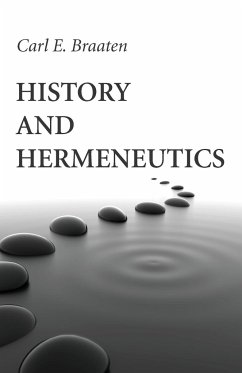This volume interprets the lost decade of theological research and reflection on the relation of Christian faith to history. The theological development of this period is depicted as a struggle to go beyond Barth and Bultmann in stressing the centrality of history for revelation and faith. Dr. Braaten deals with new hermeneutical approaches to achieve a theological synthesis of revelation and history. He describes the theology of Wolfhart Pannenberg, which calls for a more radical interpretation of revelation along historical lines, as a pivotal point in the present situation. He goes on to outline current thinking on revelation, the historical-critical method, the historical Jesus, resurrection, salvation, redemption, and eschatology.

